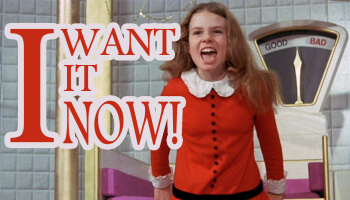Teenagers are the ones most likely to be diagnosed with Oppositional Defiant Disorder (#ODD), not because they don’t show early warning signs of having the condition by or before the time they go to kindergarten. With increased social and community mobility comes the freedom to actively choose social and emotional behaviors as well as activities. Youngsters who exhibit extreme irrationality, egocentrism (to an irreconcilable and uncontrollable degree), and a deep streak of malicious stubbornness are already well on their way to becoming defiant, crass, and “entitled” teens.
Parents who feel guilty about their child having witnessed early childhood trauma (or who truly have no grasp on what the real role “parent” means) tend to do one of two things as toxic parents. Either they tend to minimize the youngster’s acting out behavior followed by enabling and excusing or they try to win their affections and cooperation by bribing them with things. Both parenting styles lead only to crippling the youth psychologically, socially, and emotionally.
Looking to parents for competent guidance and role-modeling, children who have no decent role model figures to emulate at home tend to look around the world and decide who seems to be the most powerful and in-control person they know. Then, survival instincts set in; the psychologically damaged, possibly physically traumatized, and emotionally stunted youth in full-on “Fight or Flight” mode either tends to become a follower, a conformer, a rebel, a runner, or patterns himself or herself after whatever person he or she perceives is the strongest and most successful ones.
Case in point — observe 21st-century inner-city children living in the United States. In the absence of healthy role models at home, they may elect to fixate psychologically on the activities of a particular gang, gang member, or leader. In the early part of the 20th century (and the late part of the 19th century), inner-city kids tended to be predominantly immigrants. As the street gangs rose they matured into syndicated crime. Crime Bosses like Al Capone in the Chicago area helped inner-city families meet their physical and financial needs in return for pledging to moral indentured servitude, so to speak.
The advice you give to a teenager with Oppositional Defiant Disorder should be no different than moral lessons you read in storybooks to help teach toddlers proper socialization. If you were raised by a narcissistic family unit, the chances are that no matter how much you love your children you are going to make some fundamental logical mistakes when raising children.
Reaching out to local professionals in your region or area who are experts at dealing with kids and parents who could equally be accused of having ODD in a negative manner should seriously be on the agenda for an otherwise fundamentally loving parent who themselves has too many personal issues to be able to parent or co-parent a willful child effectively. Do not go too deep into being overly critical of yourself, either. Making sure both you and your child learn how to successfully interact as family members is the gift God (or whatever you claim as a higher power) gave you when you and a romantic partner got pregnant.
If you are a teenager or twenty-something who is in a process of healing from toxic parents, stay strong but understand that the “rose-colored glasses” people who are age contemporaries wear color their perspective. Be extremely careful about people you chose as role models as well as who you tend to spend the most time with in general.
Whether hanging out at school, after work, or spending time at home with our families, all human beings tend to become comfortable around and act like the five people we spend the most time around. Obviously, if you have terrific friends and loving family members, that’s not a problem… but it dang sure becomes a serious issue when the people who should (due to their familial role or social obligation) have your back at all times while providing you with a social support network… but they DON’T.
Seeking professional help is advised to deal with any Cluster B personality disorder. Be sure to find an expert who specializes in working with Narcissistic Abuse Recovery even if and when you yourself have exhibited signs of having acted inadvertently like an abuser to a child or if a child (through no fault of their own) grew up living through a war at home — including domestic violence, child abuse, child neglect, extreme poverty, social ridicule, or forced isolation.





